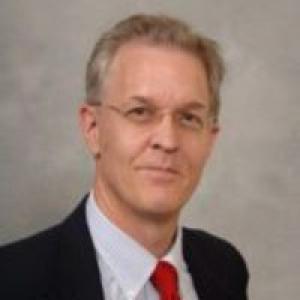John Muzzy

John Muzzy
Emeritus Professor
Chairman
(404) 894-2882
- Renewable Energy
Biofuels
IRI Connections:

(404) 894-2882

Basak.Kalkanci@scheller.gatech.edu
(404) 385-1417

caroline.genzale@me.gatech.edu
(404) 894-5099

(404) 894-2351

W. Jud Ready is the executive director of the Space Research Institute. Prior to this role, he served as associate director of external engagement for the Georgia Tech Institute for Matter and Systems and director of the Georgia Tech Center for Space Technology and Research. He has also been an adjunct professor in the School of Materials Science and Engineering at Georgia Tech and a principal research engineer on the research faculty of Georgia Tech Research Institute (GTRI) for over a dozen years. Prior to joining the Georgia Tech faculty, he worked for a major military contractor (General Dynamics) as well as in small business (MicroCoating Technologies). He has served as PI or co-PI for grants totaling ~$17M awarded by the Army, Navy, Air Force, DARPA, NASA, NSF, NIST, industry, charitable foundations and the States of Georgia and Florida. His current research focuses primarily on energy, aerospace, nanomaterial applications, and electronics reliability.
404.407.6036
Materials Failure and Reliability; Carbon Nanotubes; Integrated photonics; Photovoltaics; Solar

Samuel Graham is the Rae S. and Frank H. Neely Professor in the School of Mechanical Engineering at the Georgia Institute of Technology. He also holds an appointment in the School of Materials Science and Engineering at Georgia Tech and a joint appointment with the Energy and Transportation Science Division at Oak Ridge National Laboratories. His research focuses on the packaging and reliability of electronic devices ranging from wide bandgap semiconductors to flexible organic electronics and wearable sensors. His is a member of the Center for Organic Photonics and Electronics at Georgia Tech and a co-founder of the Heat Lab which provides thermal solutions for electronics packaging.
404.894.2264
Office Location:
Love 339
Heat Transfer; Nanostructured Materials; Electronic Systems, Devices, Components, & Packaging; Materials Failure and Reliability; Thermal Systems

404.894.0535
Office Location:
Old CE Building G20

(404) 894-1902

dewey.hodges@aerospace.gatech.edu
(404) 894-8201

(404) 894-9829